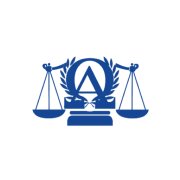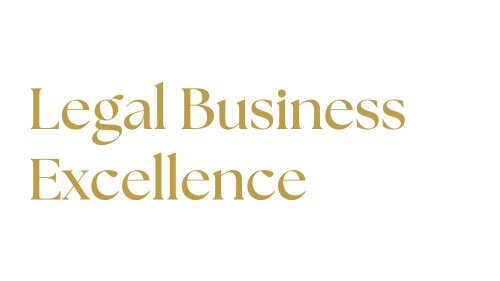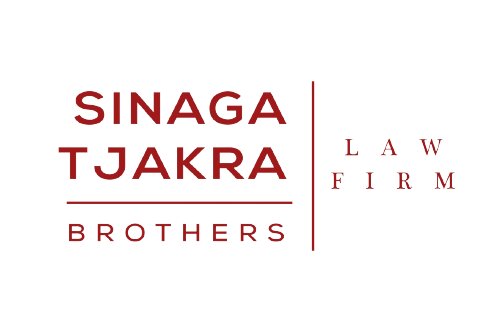Best Aviation Lawyers in Indonesia
Share your needs with us, get contacted by law firms.
Free. Takes 2 min.
Or refine your search by selecting a city:
List of the best lawyers in Indonesia

Jiwangga Law Office | Lawyer Surabaya | Advokat Surabaya | Pengacara Surabaya
30 minutes Free ConsultationAbout Aviation Law in Indonesia
Aviation law in Indonesia is a crucial aspect of the country's rapidly developing transportation sector. As the largest archipelagic nation in the world, Indonesia relies heavily on air transportation to connect its myriad islands. The aviation industry in Indonesia is governed by various national and international regulations aimed at ensuring safety, efficiency, and the economic viability of air travel. The Directorate General of Civil Aviation (DGCA) under the Ministry of Transportation is the primary regulatory body overseeing the aviation sector, establishing policies, and enforcing compliance with both domestic and international aviation standards.
Why You May Need a Lawyer
There are several common situations where legal assistance may be necessary in the field of aviation in Indonesia. These include:
- Regulatory Compliance: Airlines and aviation-related companies must comply with a wide array of regulations. A lawyer can help navigate these complex legal requirements to ensure full compliance.
- Passenger Rights and Claims: Individuals facing issues with airlines, such as flight cancellations or lost baggage, may need legal help to claim compensation or address grievances.
- Aviation Accidents: In the unfortunate event of an accident, legal representation is critical for investigating liability and pursuing any related claims.
- Contract Disputes: Disputes may arise from contracts related to aircraft leases, purchases, or other aviation services. Legal advice is important to resolve such disagreements.
- Employment Issues: Aviation professionals may require legal help with employment contracts, disputes, or compliance with labor laws.
Local Laws Overview
Aviation law in Indonesia encompasses a blend of national regulations and international conventions. Some key aspects include:
- Civil Aviation Law No.1 of 2009: This is a fundamental legal framework governing aviation activities, addressing safety, airspace, and airport infrastructure, among others.
- Air Operator Certification: Airlines must obtain certification from the DGCA to operate, ensuring adherence to safety and operational standards.
- International Conventions: As a signatory to conventions like the Chicago Convention and the Montreal Convention, Indonesia integrates these international standards into its legal system.
- Passenger Protection: Rules are in place for passenger rights, including compensation frameworks in cases of delays or cancellations.
Frequently Asked Questions
What is the role of the Directorate General of Civil Aviation in Indonesia?
The DGCA oversees the regulation of civil aviation activities in Indonesia, ensuring safety standards, managing air traffic, and enforcing national and international aviation laws.
How can I file a complaint against an airline in Indonesia?
Passengers can file complaints directly with the airline. If unresolved, they can escalate the issue to the Directorate General of Civil Aviation or pursue legal action.
Do I need a lawyer to negotiate an aircraft lease contract?
While it's not mandatory, having a lawyer can be beneficial to ensure favorable terms and compliance with complex aviation regulations.
What are my rights if my flight is canceled in Indonesia?
Passengers are entitled to compensation or rerouting options under Indonesian law, as well as assistance such as meals and accommodation in certain circumstances.
How does Indonesia enforce international aviation safety standards?
Indonesia incorporates international standards through its membership in ICAO and alignment with conventions like the Chicago and Montreal Conventions.
Can foreign entities operate airlines in Indonesia?
Foreign entities can invest in Indonesian airlines, but certain restrictions apply, including majority ownership requirements by Indonesian nationals.
What should I consider when hiring an aviation lawyer in Indonesia?
Look for lawyers with expertise in Indonesian aviation law, a strong track record in handling similar cases, and an understanding of international aviation standards.
Are there any specific laws for drone operations in Indonesia?
Yes, drone operations are regulated by specific guidelines issued by the DGCA, focusing on safety, privacy, and airspace management.
How are aviation accidents investigated in Indonesia?
Accidents are investigated by the National Transportation Safety Committee (NTSC), which analyzes causes and recommends preventive measures.
What can I do if I face discrimination by an airline in Indonesia?
Such issues can be addressed by filing a complaint with the airline or seeking legal recourse through the appropriate Indonesian authorities.
Additional Resources
For those seeking further information or assistance in aviation legal matters, the following resources may be helpful:
- Directorate General of Civil Aviation (DGCA): The primary regulatory authority for civil aviation matters in Indonesia.
- National Transportation Safety Committee (NTSC): They are responsible for investigating transport accidents, including aviation incidents.
- Indonesian Bar Association: A resource for finding licensed legal professionals with expertise in aviation law.
- International Civil Aviation Organization (ICAO): Provides international standards and practices that Indonesia adheres to.
Next Steps
If you need legal assistance in the aviation sector, consider the following steps:
- Assess Your Situation: Clearly define the legal issue or concern you are facing within the aviation context.
- Consult with an Expert: Seek initial advice from a lawyer who specializes in aviation law to understand your options.
- Gather Documentation: Collect all relevant documents, agreements, and correspondence related to your case.
- Contact a Lawyer: Engage a legal professional who can provide tailored advice and represent you if needed.
- Follow Up on Legal Advice: Work closely with your lawyer to pursue any legal actions or negotiations needed to resolve your issue.
Lawzana helps you find the best lawyers and law firms in Indonesia through a curated and pre-screened list of qualified legal professionals. Our platform offers rankings and detailed profiles of attorneys and law firms, allowing you to compare based on practice areas, including Aviation, experience, and client feedback.
Each profile includes a description of the firm's areas of practice, client reviews, team members and partners, year of establishment, spoken languages, office locations, contact information, social media presence, and any published articles or resources. Most firms on our platform speak English and are experienced in both local and international legal matters.
Get a quote from top-rated law firms in Indonesia — quickly, securely, and without unnecessary hassle.
Disclaimer:
The information provided on this page is for general informational purposes only and does not constitute legal advice. While we strive to ensure the accuracy and relevance of the content, legal information may change over time, and interpretations of the law can vary. You should always consult with a qualified legal professional for advice specific to your situation.
We disclaim all liability for actions taken or not taken based on the content of this page. If you believe any information is incorrect or outdated, please contact us, and we will review and update it where appropriate.
Browse aviation law firms by city in Indonesia
Refine your search by selecting a city.
















